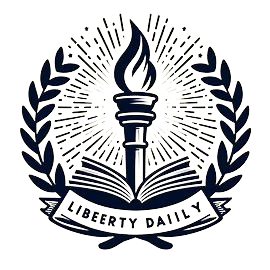As our lives becoming more and more dependent on technology, we can expect IT jobs to continue to experience massive growth, in all spheres of life.
We witness cloud computing, a wide assortment of software, mobile applications and a forever expanding internet. We also have social media, and the ever pending cybersecurity threats. As a result, organisations, whether large or small, rely, more and more on IT professionals, with the right qualifications and skills.
With this increasing demand, IT jobs pay very well, and come with benefits that most employees would find desirable. Working from home, and room for future growth, being the biggest benefits.
Looking through all the various careers in IT, can be very time consuming, and confusing. It’s for this reason, this article was put together, to list 7 of the top IT jobs you should consider.
1.System Administrator
A system administrator’s main duties involves the configuration, operation and maintenance of all computers and servers. Such duties may involve managing and installing laptops, desktops, networks, servers, IT security programs and tools, and other components that may be deemed critical for the infrastructure of the organisation.
Additional tasks of a system administrator may involve determining the correct IT policies for a company, supervising IT staff, and also buying new IT equipment. The performance of a system administrator is determined by the uptime – which is the length of time the company goes, without any problems, and the security, ensuring hackers are unable to infiltrate the network.
2.Java Developer
The main responsibility of a Java developer is to support and create Java applications (which are web-based), web interfaces and web services. Other duties may include design for server-side components, understanding the needs of a company, as well as creating and improving products. Additional tasks may include ensuring all tasks are completed within a set timeframe.

3.Network Administrator
The sole responsibility of a network administrator is to keep a network up and running. The network administrator will maintain, install and upgrade both hardware and software required by the network and its nodes (computers). The computer network can be of any size, and so, could extend to the internet, wide area network (WAN), local area network (LAN) and intranet.
4.Computer Systems Analyst
The role of the computer systems analyst entails drawing on their technical and business expertise in order to properly evaluate the organisations computer systems and procedures, with the sole goal of recommending strategic implementations that should result in cutting costs, increasing productive, and achieving some other possible objective(s).
A computer system analyst may design and configure system updates, or they may oversee an entire development team. Not all system analysts have programming backgrounds, so those without, will typically be forced to work with the software development department, in order to implement any changes. Computer system analysts are charged with improving the overall return on investment of a company, taking into consideration a company’s budget.
5.Web Developer
The main duty of a web designer is to develop the front end of a company’s website, and to maintain it. The whole creation process may involve building, designing and implementing new articles, and websites. Integrating sites using back-end programs. Migrating specific applications to the internet, while maintaining the company’s web portfolio. The knowledge and understanding of several web languages is a must.

6.Software Engineer
The job of a software engineer, is to develop, design, test and optimise programs, which are used by operating systems, video games, social media services, network systems, and business applications.
There are a wide range of professions and job responsibilities that fit under this field of work. Some software engineers, may work at small companies, were they carry out duties on small scale specialised tools, while others may work on tools for databases and networks, at much larger organisations or agencies. A software engineer will usually work in a group, with an administrator as an overseer.
7.IT Manager
The IT manager is tasked with coordinating the computer and information systems. IT Managers are also known as information technology managers, and they are expected to coordinate the maintenance and installation of software and network hardware. An IT manager may also be expected to monitor the requirements of company operations which may entail researching new
technical solutions and strategies.
–AUTHOR INFO—
Uchenna Ani-Okoye is a former IT Manager who now runs his own computer support website https://www.compuchenna.co.uk.


